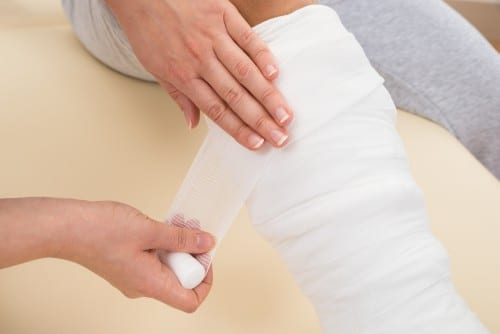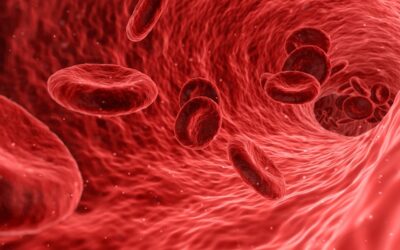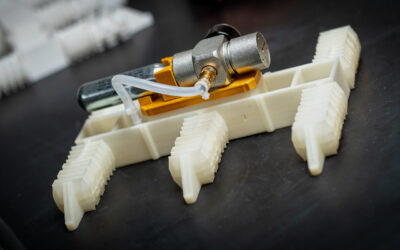An international, interdisciplinary team of researchers is developing highly porous biomaterials for the localized release of therapeutic ions and drugs in the MOZART project. Materials scientist Prof. Dr. Aldo R. Boccaccini is head of the team of researchers at Friedrich-Alexander-Universität Erlangen-Nürnberg (FAU), one of the project’s academic partners. MOZART is being funded by Horizon 2020, the EU Framework Programme for Research and Innovation.

Image: Panthermedia/Andriy Popov
The body’s powers of regeneration sometimes fail. Around 350,000 people a year suffer from broken bones that cannot heal by themselves, while around 2.2 million patients with conditions such as diabetes have to cope with chronic open wounds. MOZART (Mesoporous matrices for localized pH-triggered release of therapeutic ions and drugs) aims to help these patients. The goal of the project is to use mesoporous – i.e. highly porous – silicate nanomaterials to support bone and wound healing.
The team of FAU researchers is developing new inorganic and mesoporous materials whose pores are approximately ten nanometres in size and which have a unique chemical composition. “The pores of these bioactive particles will be enriched with active agents and are designed to release medication locally in a controlled manner, meaning that the active agent is released in the location where it is required”, Prof. Boccaccini explains. “This allows doses to be reduced and side affects to be avoided.”
The overall goal of the four-year project is to develop a database of new and bioactive nanomatrices. “We are delighted that we are able to contribute our expertise to such an important project”, Prof. Boccaccini continues.
The MOZART consortium consists of five high-tech SMEs and six European universities, including FAU, the Polytechnic University of Turin, Complutense University of Madrid and the University of Sheffield. The European Commission is funding the project with a total of 4.65 million euros.

















